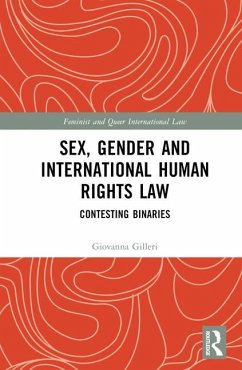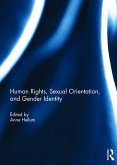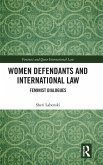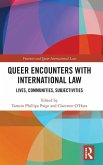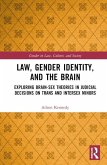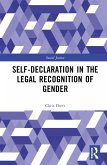This book investigates the relationship between sex and gender under international human rights law, and how this influences the formation of individual subjects.
Combining feminist, queer, and psychoanalytical perspectives, the author scrutinises the sexed/gendered human rights discourse, starting from the assumptions underpinning interpretations of sex, gender, and the related notions of gender identity, sex characteristics, and sexual orientation. Human rights law has so far offered only a limited account of the diversity of sexed/ gendered subjectivities, being based on a series of simplistic assumptions. Namely, that there are only two sexes and two genders; sex is a natural fact and gender is a social construct; gender is the metonymic signifier for women; and gender power relations take the asymmetrical shape of male domination versus female oppression. Against these assumptions, dominative and subordinate postures interchangeably attach to femininities and masculinities, depending on the subjects' roles, their positionalities, and the situational meanings of their acts. The limits of an approach to gender which is based on rigid binaries are evident in two case studies, on the UN human rights treaty bodies' vocabulary on medically unnecessary interventions upon intersex children and on the European Court of Human Rights' narrative on sadomasochism.
This examination of the impact of human rights on gendered subjectivities will be of interest to scholars, students, and researchers in international law, gender studies, queer studies, cultural studies, critical race theory, and psychoanalysis.
Combining feminist, queer, and psychoanalytical perspectives, the author scrutinises the sexed/gendered human rights discourse, starting from the assumptions underpinning interpretations of sex, gender, and the related notions of gender identity, sex characteristics, and sexual orientation. Human rights law has so far offered only a limited account of the diversity of sexed/ gendered subjectivities, being based on a series of simplistic assumptions. Namely, that there are only two sexes and two genders; sex is a natural fact and gender is a social construct; gender is the metonymic signifier for women; and gender power relations take the asymmetrical shape of male domination versus female oppression. Against these assumptions, dominative and subordinate postures interchangeably attach to femininities and masculinities, depending on the subjects' roles, their positionalities, and the situational meanings of their acts. The limits of an approach to gender which is based on rigid binaries are evident in two case studies, on the UN human rights treaty bodies' vocabulary on medically unnecessary interventions upon intersex children and on the European Court of Human Rights' narrative on sadomasochism.
This examination of the impact of human rights on gendered subjectivities will be of interest to scholars, students, and researchers in international law, gender studies, queer studies, cultural studies, critical race theory, and psychoanalysis.
"This book is an ambitious multidisciplinary undertaking to theorize about gender and sex as two social constructs and explain consequences for international human rights law. Gilleri does not hesitate to take distance from prejudiced, outdated or unscientific views, whoever presents them." Martin Scheinin, British Academy Global Professor, University of Oxford, UK
"Combining queer, feminist and psychoanalytical insights, Gilleri exposes the exclusions, confusions - and human rights abuses - that flow from the binary conceptions of sex/gender/sexual orientation assumed by international human rights law. Her examination of the surgical sexing of intersex children and sadomasochistic sexual practices provide compelling illustrations." Dianne Otto, Melbourne Law School, Australia
"Combining queer, feminist and psychoanalytical insights, Gilleri exposes the exclusions, confusions - and human rights abuses - that flow from the binary conceptions of sex/gender/sexual orientation assumed by international human rights law. Her examination of the surgical sexing of intersex children and sadomasochistic sexual practices provide compelling illustrations." Dianne Otto, Melbourne Law School, Australia

